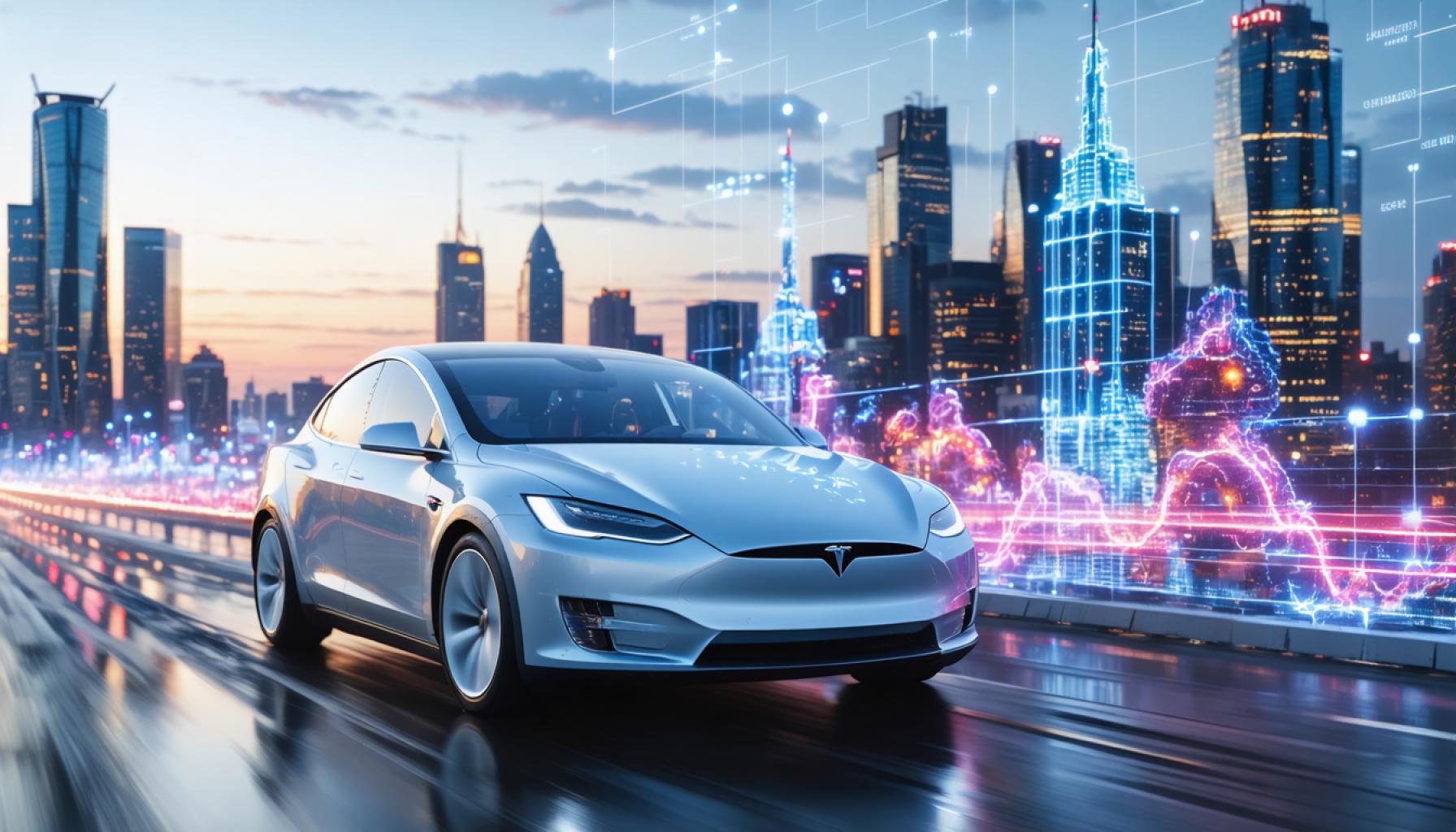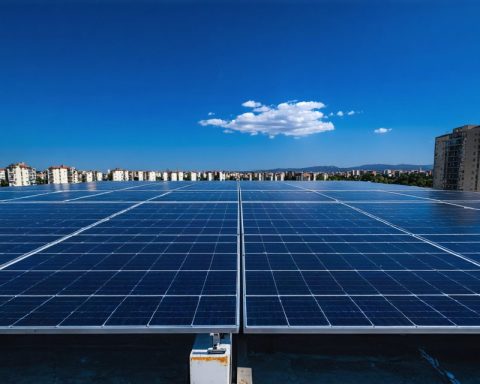- Tesla is influencing global politics by driving conversations on energy policy and environmental legislation.
- Its zero-emission vehicles are reshaping how governments worldwide address climate change and carbon reduction.
- In the United States, Tesla’s presence supports legislative efforts offering incentives for electric vehicle adoption.
- European countries, notably Germany, have intensified their infrastructure efforts following Tesla’s initiatives.
- In China, Tesla’s partnership bolsters New Energy Vehicle policies and competitive advancements in electric vehicles.
- Elon Musk plays a vital role in engaging with global policymakers, emphasizing Tesla’s technological and environmental influence.
- Tesla’s growth in politics underscores the alignment of economic interests with ecological responsibility, paving the way for innovative climate policies.
Tesla, the electric vehicle giant, has long been synonymous with innovation and forward-thinking technology. But now, its influence stretches far beyond the realms of automotive engineering; it is quickly becoming a formidable player in global political spheres. As governments race to address climate change and reduce carbon footprints, Tesla’s zero-emission vehicles are reshaping the conversation on energy policy and environmental legislation.
The impact of Tesla in politics has never been more pronounced. Picture the bustling halls of Congressional meetings or the serious debates in Europe’s Parliaments. Politicians articulate agendas around green energy, often referencing the success of Tesla’s electric vehicles as a blueprint for future policies. The sheer ubiquity of Tesla’s presence on roads worldwide signifies a shift in national priorities, urging lawmakers to enact incentives for clean energy industries.
A vivid example unfolded in the United States when several states proposed legislation offering substantial tax breaks and incentives for purchasing electric vehicles. Tesla was not only a beneficiary but also a catalyst, with advocates often showcasing Tesla’s increase in electric vehicle demand as a testament to public readiness for change. The vivid allure of these sleek, battery-powered cars—whizzing silently through bustling urban centers—paints a picture of progress that appeals to both policymakers and the public.
Across the Atlantic, European nations, striving to meet stringent emissions targets, watch Tesla with keen interest. In Germany, a country renowned for its automotive excellence, Tesla sparked significant policy discussions. After Tesla announced the construction of its Gigafactory in Berlin, German legislators swiftly debated enhancing infrastructure for electric vehicles, including more charging stations—a crucial step towards a greener future.
Tesla also played a pivotal role in China, the world’s largest automotive market. The Chinese government, eager to curb pollution, saw Tesla as a torchbearer for its New Energy Vehicle policies. This partnership facilitated Tesla’s factory establishment in Shanghai, which in turn nudged other companies to accelerate their electric vehicle plans to remain competitive in the rapidly evolving landscape.
Behind the scenes, Elon Musk—a visionary figure synonymous with Tesla—engages with policymakers, wielding influence that extends beyond business. His strategic conversations with regulators and presence at international summits emphasize Tesla’s role not just as a car manufacturer but as a leader in technology-driven environmental strategy.
The key takeaway from Tesla’s burgeoning role in politics is undeniable: the company catalyzes legislation that aligns economic interests with environmental sustainability. By serving as a potent symbol of technological advancement married to ecological responsibility, Tesla paves a path for future innovations in climate policy.
In essence, Tesla’s foray into politics signals a crucial shift. Governments worldwide, heeding the clarion call for sustainable solutions, increasingly embrace Tesla’s vision. This embrace not only fortifies Tesla’s position as an industry leader but also reinforces the notion that change, powered by innovation, is both necessary and inevitable. As nations strive for a cleaner, more sustainable future, Tesla stands at the crossroads, steering global policy toward the electric horizon.
How Tesla’s Influence is Revolutionizing Global Energy Policies
Expanding Tesla’s Impact on Politics and Global Energy Policy
As Tesla extends its influence into political spheres, it’s doing much more than shaping the future of transportation. It’s altering the very fabric of global energy policies, encouraging governments to adopt more aggressive stances towards reducing carbon emissions. Here, we delve deeper into aspects not fully explored in other discussions, unveiling broader insights into Tesla’s role beyond manufacturing.
Market Trends and Forecasts: Electric Vehicles on the Rise
Tesla’s innovations aren’t just sparking debates; they’re setting trends. The global electric vehicle (EV) market is projected to grow substantially in the coming years. According to industry reports, the market is expected to reach $802.81 billion by 2027, growing at a CAGR of 22.6% from 2020 to 2027. Tesla’s advancements frequently act as a benchmark against which other companies measure their progress.
Real-World Use Cases: Tesla’s Broader Influence
1. Infrastructure Development: Tesla’s Gigafactories don’t just manufacture vehicles; they catalyze regional economic development. The locations often see upgrades in public transportation infrastructure associated with EV needs, such as charging stations and road enhancements.
2. Job Creation: The setting up of Tesla factories, such as the one in Berlin, doesn’t only impact policy; it results in thousands of new jobs. The Berlin Gigafactory alone is expected to create over 10,000 jobs. [source needs verification]
3. Renewable Energy Advancements: Tesla’s focus on solar energy, through its energy division, pushes local governments and companies to consider renewable sources more seriously. Its solar roofs and energy storage solutions like the Powerwall exemplify practical applications influencing local energy grids.
Industry Comparisons: Tesla vs. Traditional Automakers
Tesla is often compared with traditional automobile giants, and while legacy manufacturers like Ford and General Motors are ramping up their EV portfolios, Tesla holds a competitive edge due to its software capabilities, autonomy in driving features, and direct-to-consumer sales models. This positions Tesla as a leader in both vehicle technology and customer experience.
Controversies and Limitations
While Tesla operates at the forefront of technological advancements, it isn’t without criticism:
– Market Volatility: Elon Musk’s social media presence can cause fluctuations in stock prices, raising concerns about the company’s stability.
– Production Delays: Tesla has faced criticism over missed production deadlines, which some believe could affect its credibility.
Predictions and Insights
Looking ahead, Tesla is poised to continue influencing regulations around autonomous driving. Policymakers globally are closely monitoring Tesla’s progress with Full Self-Driving technology. The automation of vehicles will likely become a major legislative focus in the next decade.
Actionable Recommendations
For consumers and stakeholders looking to capitalize on Tesla’s trajectory:
– Invest in EV Infrastructure: Given the rise of EV adoption, investing in EV charging technology and services can be lucrative.
– Stay Informed on Legislation: Policy changes often impact EV incentives—understanding local and international trends can offer strategic advantages.
Quick Tips
– If you’re considering purchasing a Tesla vehicle, check local government websites for updates on potential incentives or rebates.
– Stay updated on keynote speeches or appearances by Elon Musk, as these often provide insights into Tesla’s future plans.
Tesla’s role in politics and policy is undeniable. Beyond cars, it’s charting a new course for a sustainable future, signaling a global shift towards greener, forward-thinking policies—underscoring its position not just as a tech leader, but as a political influencer.
For more on technology and innovation trends, visit Tesla.


















